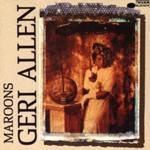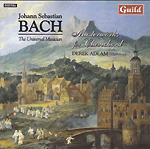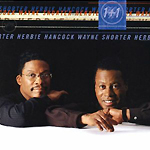Duocracy has only been out a few days (pick up a copy here!), but we're already seeing some nice reviews coming in, which is really gratifying. Here are some of the first batch!From a thoughtful review from Stephen Graham on the great site marlbank (check out the site for two versions which inspired our rendition of "Goodbye"):
More traditionally minded on the surface at least than Roads and Codes, last year’s Ian Carey Quintet + 1 outing, Duocracy opens with ‘Little White Lies,’ the Walter Donaldson song from 1930 that Paul McCartney has mentioned was a childhood favourite of John Lennon’s. Trumpeter Carey, who’s in his late thirties and is from New York state, teams here with NYC-born pianist Ben Stolorow a few years his junior who debuted in 2008 with I’ll Be Over Here and whose input gives the album its deceptively early jazz feel. Carey has width and expressive resource in his approach, Stolorow too, and while Roads and Codes found Carey more in Dave Douglas-land here the trumpet stylings are far more mainstream, for instance the sound of Ruby Braff springs to mind a bit, and I suppose Stolorow could be compared to the late Dave McKenna in that his style borders on stride but never quite goes the full furlong as that would be just too retro. ... Ultimately whatever the way in to the song, and the same applies for the album as a whole, while Stolorow and Carey play their own particular blend of goodbye, jazz fans may well prefer a firm hello to this appealing duo. (3 1/2 stars)
From the website Bop-n-Jazz:
Face it, a duo format is almost as "naked" as a performer can get so any apprehensions from the artists are more than understandable ... yet there is unique chemistry that allows Carey and pianist Ben Stolorow to form a dynamic duo of sorts that slays the more pop oriented tunes from the classic days of jazz. Ben moves well away from the more traditional role of accompanist to achieve that "duocracy" of equal lyrical footing... There is an understated eloquence that takes hold throughout the release. Melody is back, changes are done with finesse and not a self-indulgent pretentiousness that may find one artist attempting to out perform the other. While the tunes are familiar and some bordering on eclectic, the original composition "Comin' Along" is an abstract showstopper formed around the Benny Golson standard "Along Came Betty." Rodgers and Hart's "You Took Advantage of Me" is the perfect vehicle for the harmonic gifts of pianist Stolorow. The Mancini tune " Two For The Road" is a master class for trumpet players that are looking to work on a more expressive tone, Carey simply nails it. (5 stars)
From Bruce Collier in the independent weekly The Beachcomber:
San Francisco jazzmen Carey (trumpet) and Stolorow (piano) did some gigging together last year in the Bay Area and decided to make it legit, the result being Duocracy. The album offers 10 tracks, including American Songbook standards and showpieces like “Cherokee.” Carey’s tone and approach are in the hard-bop style, somewhere between Lee Morgan and Clifford Brown in their bouncier moods. Stolorow skillfully backs him up, and there’s a meeting of the minds on every song. When two fine players are having fun, it’s good to listen in.
Always interesting to read which influences different listeners hear in one's playing! From Chris Spector in the Midwest Record:
After years of striving and making albums everyone raves about, this duo that has worked a lot together but never recorded together decided to take a tip from us and go after hours. Just the two of them smoking it up hotel piano bar style on a set card of warhorses carries the day quite nicely and you can tell they enjoy recording with the pressure off. In fact, these Bay area staples sound like they were kicking it out in the bar at this swank hotel on the rehabbed Berkeley waterfront with the sun going down in the background and the glasses clinking. First class throughout, loaded with the joy of playing for the fun of it. Infectious--in a good way!
And finally from Lee Hildebrand in our own East Bay Express:
The duo of Richmond trumpeter Ian Carey and Albany pianist Ben Stolorow is the most adventurous and exciting trumpet-pianist pairing since cornetist Ruby Braff and pianist-organist Dick Hyman played together a quarter century ago. But whereas Braff and Hyman’s music was rooted in the pre-bop mainstream, these two East Bay musicians draw stylistically on a somewhat later era. They have a terrific new CD titled Duocracy on which their approach to melody, harmony, and rhythm suggests Thelonious Monk as they playfully explore “Cherokee,” “Little White Lies,” “You Took Advantage of Me,” “All the Things You Are,” and other popular standards, plus Gigi Gryce’s “Social Call,” Monk’s “Four in One,” and a tune of their own.
Meanwhile, I was a guest on KCSM's great Desert Island Jazz show last week, and had a great time talking about some of my all-time favorite music with host Alisa Clancy and producer Michael Burman. My playlist can be found here--it was incredibly challenging to winnow my list down to 8 tracks, but I feel good about who made the final cut. I also recommend taking some time to check out their full list of past guests and picks (who range from local heroes to international legends), which is fascinating. You can listen to my episode here:[embed]http://iancareyjazz.com/audio/Ian_Carey_Desert_Island_Jazz.mp3[/embed]Finally, don't forget that Ben & I have one more CD release show next Friday (March 7)--our North Bay version--at Old St. Hilary's in Tiburon. If you weren't able to make it to the Jazzschool (uh, make that California Jazz Conservatory!), please consider heading to beautiful Marin County next week to hear us!








